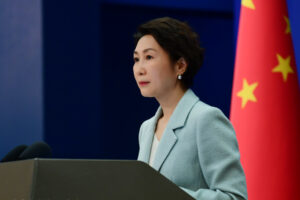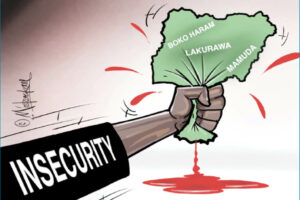
The Recyclers Association of Nigeria (RAN) has called on the Federal Government and the National Assembly to prioritize a minimum plastic recycling content policy and introduce tax incentives for recycling companies and waste aggregators.
The Association stated that these measures are essential to strengthening Nigeria’s transition toward a circular economy, attracting sustainable investments, and creating more green jobs across the country.
These were key takeaways at the Association’s 2025 Conference, themed “Recycling for Prosperity: Creating Jobs, Growing Economies.” The event brought together government institutions, private-sector leaders, development partners, and members of the recycling community.
Stakeholders at the conference examined how circular economy principles can drive economic transformation and environmental recovery, noting that this will require manufacturers to include a defined percentage of recycled materials in their products.
According to the Association, “This policy will expand the market for locally processed recyclables, reduce imports, and support local production.”
RAN also advocated for tax exemptions and tax breaks for plastic waste aggregators and recycling companies, stating that such measures will help businesses reinvest in expansion, create jobs, and strengthen resilience in the circular economy sector.
On Recycling as an Engine of Economic Growth and Sustainable Development, the conference noted that the sector has the potential to generate well over ₦100 billion annually and create thousands of jobs nationwide. Achieving this, it stressed, will require deliberate government support, infrastructure development, and targeted incentives.
Emphasis was placed on the need for legislative and policy support, as participants highlighted the importance of strengthening national laws and policies that promote circularity, including improved implementation of the Environmental Impact Assessment Act, the Climate Change Act, and the Extended Producer Responsibility (EPR) framework.
Other resolutions noted that Nigeria currently recycles less than half of the waste it produces—reflecting the need for stronger coordination, private investment, citizen participation, and government support across all tiers. Participants also stressed the importance of raising public awareness about the economic and environmental benefits of recycling.
The role of the informal sector was strongly emphasized, as waste collectors and aggregators within this space are central to Nigeria’s recycling ecosystem. Their integration into formal systems is vital to ensuring fairness, traceability, and efficiency.
The conference further observed that many recycling enterprises, particularly micro and women-led businesses, face major challenges accessing credit and business support. Technology was also identified as critical for enhancing digital systems for data management, waste tracking, and performance monitoring.
On private-sector leadership, the Association commended organizations such as Coca-Cola, Nestlé, Sonnex, among others, for their ongoing partnerships and contributions to sustainable waste recovery.
RAN reaffirmed its dedication to building a future where waste management contributes directly to national prosperity. The Association believes that with the right policies, particularly a Minimum Plastic Recycling Content requirement and tax incentives for recyclers, Nigeria can convert its waste challenge into a powerful source of employment, innovation, and climate resilience.
RAN therefore calls on government, legislators, private investors, and citizens to unite in advancing a circular economy that values sustainability and human dignity.





